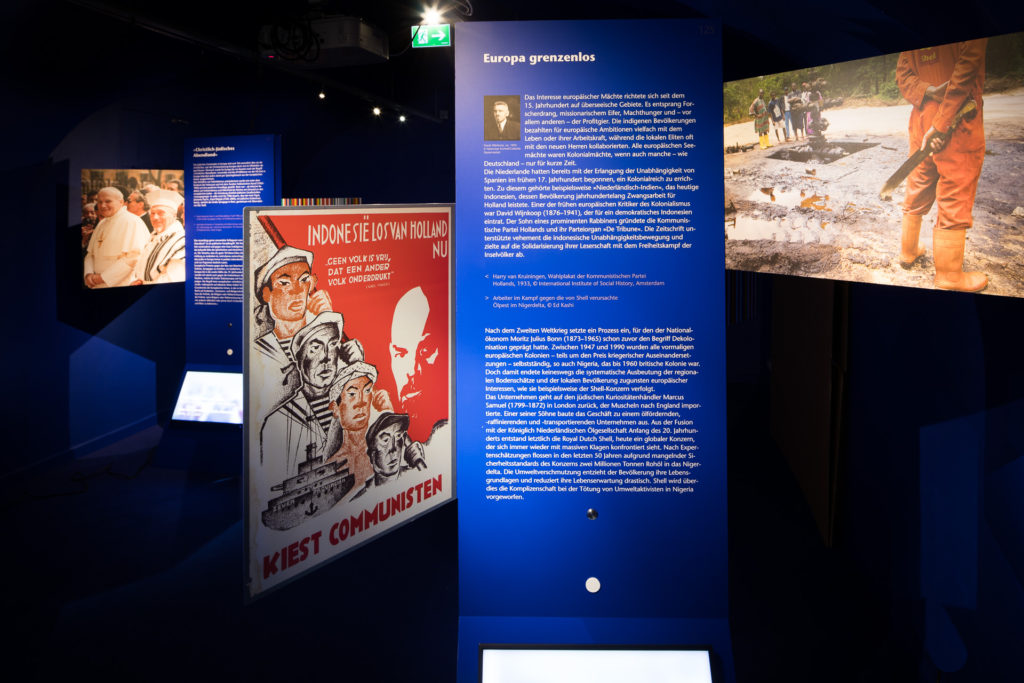
Installation Europe Boundless. Photo: Dietmar Walser
^ David Wijnkoop, ca. 1935, © Nationaal Archief/Collectie Spaarnestad
< Harry van Kruiningen, election campaign poster of the Communist Party of Holland, 1933, © International Institute of Social History, Amsterdam
> Workers battling the oil pollution in the Niger Delta caused by Shell, © Ed Kashi
After the Second World War, a process began for which the economist Moritz Julius Bonn (1873–1965) had already previously coined the term decolonization. Between 1947 and 1990, all former European colonies—in part, through paying the price of armed conflicts—gained their independence, among them also Nigeria, which was a British colony until 1960. However, by no means did this put an end to the systematic exploitation of regional natural resources and of the local population for the benefit of European interests as pursued, for instance, by the Shell Group.
The company traces back to the Jewish dealer in curiosities Marcus Samuel (1799–1872) in London who imported shells to England. One of his sons expanded the business into an oil-producing, -refining, and -transporting company. Ultimately, the early-20th-century merger with the Royal Dutch Petroleum Company brought about Royal Dutch Shell, today a global corporation that faces, time and again, massive lawsuits. According to expert estimates, two million tons of crude oil have flown into the Niger Delta in the past fifty years as a result of poor safety standards implemented by the corporation. Environmental pollution strips the population off their livelihood and drastically reduces their life expectancy. Moreover, Shell is accused of complicity in killing environmental activists in Nigeria.
